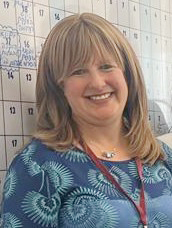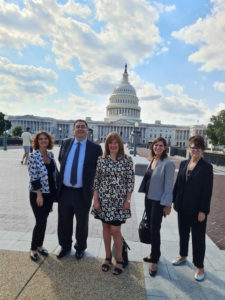OpEds
Heavy hitters take on social-media hatred

Social media is often blamed for the spread of decidedly unsocial sentiments and beliefs and all the ills that flow from that. There’s a great deal of truth to this.
Never before has it been so easy to disseminate hateful views aimed at denigrating and defaming not just individuals, but entire groups. Jews are unfortunately among those most commonly targeted.
However, at the end of the day, online platforms are no more than a tool, and like any tool, whatever good or harm they do depends on what use they are put to.
Deborah Lipstadt made that point very effectively at last week’s Inter-Parliamentary Task Force to Combat Online Antisemitism (ITFCOA) summit, held at the United States Capitol in Washington DC.

Social media, she said, was like a knife. When wielded by a surgeon, a knife could save a life but, in the hands of a murderer, it could do lethal harm.
Similarly, the use social media is put to depends on the intent of the user, Lipstadt said. Earlier this year, Lipstadt was appointed the US special envoy for monitoring and combatting antisemitism. She was catapulted into the limelight when notorious Nazi apologist David Irving unsuccessfully sued her for defamation for having called him out as a Holocaust denier.
I was privileged to attend the ITFCOA summit, the first to be held in person since its establishment in 2020. It was an important opportunity for parliamentarians, including from South Africa, to come together with special antisemitism envoys Lipstadt (US); Noa Tishby (Israel); and Professor Irwin Cotler (Canada). They were also able to interact with leading Jewish civil society organisations such as the Anti-Defamation League (ADL); Conference of Presidents of Major American Jewish Organisations; and World Jewish Congress (WJC) to formulate a strategy to address online antisemitism.
Online hate poses a threat to all of society, not just to those specifically targeted. This point was made by, among others, US Congresswoman Debbie Wasserman Shultz. She cautioned that online hate and incitement could lead to physical violence, the most recent example being the racially motivated Buffalo shootings.
As the bodies that exercise practical control over what’s published, the main social-media companies have a particular responsibility to take whatever practical steps necessary to combat the scourge of online hatred.
It was therefore of critical importance that high-ranking officials from Meta, Twitter, YouTube, and TikTok were also present at the hearings, where their company policies on addressing hate were discussed and questions put to them.
This was important for the South African Jewish Board of Deputies (SAJBD), since one of the things we have struggled with in the past has been our isolation from these companies.
Last week’s inter-parliamentary summit should be seen as just one step forward in what should be an ongoing battle.
From the SAJBD’s perspective, it’s fortunate that we’re able to work closely with our global counterparts, and most notably the WJC and ADL, who have forged strong and effective connections with the social-media companies concerned.
They are highly experienced and knowledgeable in dealing with online hate, and unfailingly make themselves, their networks, and know-how available to us whenever we need them.
Such assistance has been invaluable to us in our ongoing effort to combat online hate on the local front, where fake profiles, identity theft, and challenges to obtaining information on those threatening our community are some of the problems we must grapple with.
As previously reported, last week, SAJBD National Chairperson Karen Milner and I participated in the inaugural conference of the new London Centre for the Study of Contemporary Antisemitism, several sessions of which also addressed online hate. I also sit on the WJC online working group, which addresses these issues on a regular basis.
The SAJBD will continue to be vigilant against online hatred, and do all it can to address it. In this regard, we rely in no small measure on members of our own community to bring such cases to our notice, and so I ask anyone who becomes aware of unacceptable content to let us know on sajbd@sajbd.org.
- Wendy Kahn is the National Director of the South African Jewish Board of Deputies.